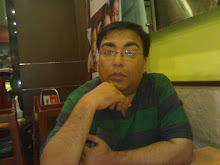As a consumer of healthcare services and also as a keen observer of the drama that unfolds in a hospital everyday, I have often wondered at the extent of opacity that I see around me. A hospital is usually as transparent as a black hole. Ironically most hospital swear by the maxim of 'complete transparency'. This is rarely true.
Try getting a straight answer from a hospital executive or a doctor and you will straightaway run into a wall. They are just not programmed to answer straight. Many a times, I would accept that it may not be feasible or advisable for a doctor to be completely transparent. However, there are times when a doctor must look the patient in the eye and say as it is.
Delivering bad news is never easy. It takes a lot of character and compassion to tell another individual that he is terminally sick. However, not telling or beating around the bush, while doing so is far worse. Than there is the matter of giving hope to those diagnosed with a rare condition, telling them that, while they are gravely ill, they need to put up a fight and the doctors, the hospital and everybody else responsible for their care will walk with them every step of the way. I would like to believe that the ability to communicate and connect with the patients is a wonderful gift to have and it makes for some very happy patients.
There are those tricky stuations as well, when something unexpected happens. A patient with a great prognosis suddenly collapses, a patient doing well after a complicated surgery falls pray to a rampaging infection, a completely unexpected problem arises in the OR, a terrible mistake is made somewhere. In hospitals, things happen, errors can not be completely ruled out, and unfortunately it is mostly the patient who pays the price. The treating surgeon/doctor is the one, who has to do the explaining and he usually finds himself in dire straits. After all, it is not easy to own up ones mistakes and admit that a loss of life could have been averted, if things were done differently. Here, most doctors and hospitals lie their way out of trouble.
In India it works often enough. The attendants of the patient are far too disturbed to mull over what went wrong, their sense of loss is so overwhelming that they hardly have the presence of mind to question anyone. Indians are a fatalistic people, and attribute much of what happens in their lives, death included, to the mysterious workings of fate. The doctors and surgeons are looked upon with a great deal of respect and an unexpected outcome is rarely blamed on the doctor's incompetence. Often, medical folks tend to answer difficult questions in jargon or offer obtuse explanations, which are difficult to comprehend but appear to exonerate them from any culpability.
Is all this sound medical practice? Most of us would answer that in the negative. Is it the most convenient way out for the doctors and the hospital, I would probably answer in the affirmative but with a caveat. The hospital after every such episode must undertake to investigate the matter, fix accountability, correct the process, which led to the error and ensure that the problem never recurs. Should the hospitals offer a compensation or own up to an error, whenever an unexpected outcome happens? I would say no, simply because in the practice of medicine, negative outcomes can never be completely eliminated.
Finally, what should the hospital do, when gross error amounting to negligence comes to light. My answer would be to own up, investigate, fix responsibility and act decisively. Communicate directly with those hit by the tragedy, apologise and transparently share with them the corrective measures being put in place. Also ask, if there is something that the hospital can do by way of compensation. This is the most tricky and difficult part because whatever one may offer, the unexpected loss of a dear one can not be compensated.
I personally hold that appropriate communication, done in the right manner can help mitigate even the most difficult situations. If one is honest and sincere, most people will understand and reciprocate.

No comments:
Post a Comment